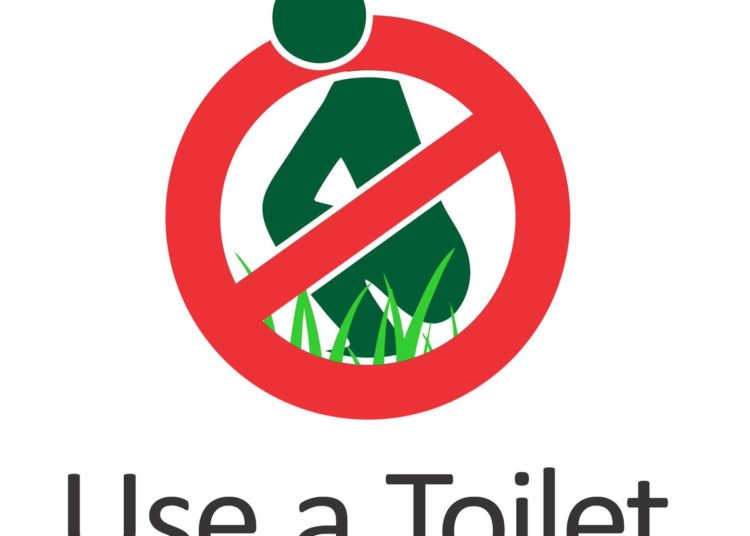Nigeria continues to grapple with the daunting challenge of open defecation, as startling statistics indicate that approximately 48 million Nigerians, a significant portion of the population, still engage in this unhygienic practice.
According to the United Nations Children’s Fund (UNICEF), Nigeria ranks among the countries with the highest rates of open defecation globally.
The latest data reveals that around 46% of the Nigerian population, over 90 million people, lack access to proper sanitation facilities and are forced to resort to open defecation.
The UNICEF Chief of Water, Sanitation, and Hygiene (WASH), Jane Bevan, emphasized the inadequacy of the current rate of toilet construction in the country, which stands between 180,000 and 200,000 toilets annually.
UNICEF stated that Nigeria needs to construct 20 million household toilets and 43,000 toilets in schools, health centers, and public places to become a clean and healthy country, aiming to be open defecation-free by 2025.
Mrs. Bevan also highlighted the crucial role of toilet business owners in addressing the open defecation challenges in Nigeria.
Meanwhile, experts and stakeholders have suggested that the Federal Government needs to invest approximately N1.9 trillion to address Water, Sanitation, and Hygiene (WASH) problems and eradicate open defecation in the country by 2025.
This projected amount is significantly higher and far exceeds the earlier earmarked N10 billion by the federal government when the project was launched in 2016. In 2019, the federal government declared a state of emergency with a roadmap campaign to eradicate the practice by 2025.
However, recent assessments indicate that Nigeria’s progress in this regard has been sluggish and falls short of the desired outcome.
In an interview with this paper, Chizoma Okpara, the ODF director at the Ministry of Water Resources, disclosed that the country currently has 102 Local Government Areas (LGAs) across 14 out of the 36 states that have achieved open defecation-free status.
She mentioned that Jigawa in the North-West was declared completely open defecation-free, while Anambra, Akwa Ibom, Bauchi, Benue, Borno, Cross River, Kano, Kaduna, Katsina, Osun, Yobe, and Zamfara each have some LGAs that are open defecation-free.
Sadly, states hosting the country’s largest commercial cities like Lagos, Rivers, Cross River, and Anambra are still struggling with high prevalence of open defecation.
Target 6.2 of the UN Sustainable Development Goals (SDGs) mandates countries to end open defecation and provide access to sufficient and equitable sanitation and hygiene, especially for women and girls who are prone to socio-economic and cultural risks.
According to health experts, approximately 90,000 children die every year due to sanitation-related diseases, and the journey towards achieving open defecation-free status is an opportunity to prevent these deaths.
It is important to note that open defecation is the practice of defecating outside rather than using a toilet. People may choose fields, bushes, forests, ditches, streets, canals, or other open spaces for defecation due to the unavailability of toilets or traditional cultural practices.
During the commemoration of the 2021 World Toilet Day, former Minister of Water Resources, Suleiman Hussein Adamu, noted that open defecation, resulting from the lack of sanitation facilities, is linked to sanitation-related diseases, poor educational outcomes, loss of productivity, and also affects the dignity, convenience, and safety of women and girls involved.
Quoting statistics from the 2021 World Bank report, the former minister declared that Nigeria loses 455 billion or $3 billion annually due to poor sanitation.
In the considered opinion of this newspaper, given the lackluster and disappointing indicators in the open defecation-free campaign, Nigeria is unlikely to achieve the 2025-2030 SDGs target, which is only a few years away.
Considering the LGAs that have achieved open defecation-free status, only 102 out of the country’s 774 LGAs have reached that milestone.
While some are eager to exit this unfortunate category, many states like Cross River have not mustered the political will to do so.
The lack of complete commitment from some state governors presents a significant challenge to achieving the collective goal of ending open defecation by 2025.
Inconsistent implementation of sanitation programs, inadequate resource allocation, and limited political will can hinder the effectiveness of initiatives aimed at improving sanitation infrastructure and promoting behavioral change.
While we commend the leadership of the 10th House of Representatives for urging its members to include water and sanitation projects, including the construction of toilets, in their constituency projects, we hope this encouragement extends beyond the legislative chamber.
We propose that governments initiate an emergency program to meet this target and address its root causes.
Experts link the motivation for open defecation to ignorance and habitual social lifestyles in many communities. Additionally, the lack of water supply, absence of functioning toilet facilities, and poor maintenance of existing facilities act as triggers. In some cases, operators demand payment for the use of toilet facilities, which forces some individuals to seek alternatives.
From this perspective, we call for close collaboration between the private sector, all levels of government, and communities to actively create sustainable solutions and address the sanitation needs of unserved and underserved communities. This collaboration aims to promote capital investment and human capital growth.
Furthermore, we share the view of Mrs. Okpara that where there is a will, there is a way, and if toilet business owners can be supported with soft loans with little or no interest, Nigeria can achieve the target of ending open defecation.





